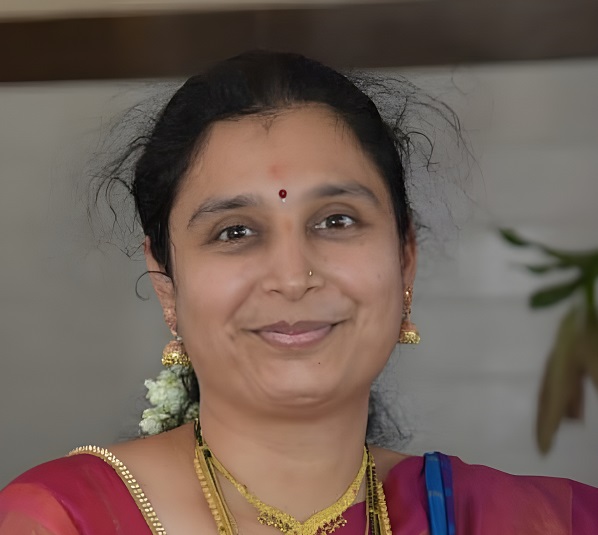Dr Shruti Deshpande KAULGUD responds to ThinkWellness360 questionnaire:
Why and how did you think of becoming a doctor?
I was first motivated to serving the poor and the ill with good quality healthcare, while seeing my father treat hundreds of patients during my childhood. Their genuine gratitude for his treatment, skill and compassion propelled me, no less, to become a doctor.
What made you think of, study and specialise in the system of medicine you now practice?
I found Ayurveda, with its rich heritage and natural ability to treat diseases, big and small, without affecting our body adversely, attractive. I agree that we have thousands of doctors practicing Ayurveda in our country, but the overall figure of doctors committed to traditional, or what is called pure Ayurveda, is unfortunately nothing to write home about, or feel proud of. This was the real trigger, or inner call, that persuaded, also encouraged, me to opt for traditional Ayurveda as a career and practice it with diligence, or fidelity, and also to the best of my ability.
What has been your personal and professional experience as a doctor?
It has been truly fulfilling; it has also been a fabulous learning experience. The great feeling to be able to treat patients with diseases that may not be amenable to conventional medicine is the real icing on the cake for me.
What unique and special skills you think you have that has made the big difference for your patients?
Treating patients with diabetes and making them less dependent of conventional medicine, or ‘drug-free,’ has been my special skill, also experience. What’s more, I just cannot forget the happy faces of several infertile women, who after years of being ‘barren,’ were able to conceive, following professional Ayurveda treatment at my clinic. This, I reckon, has made the big difference to my patients. This is not all. To be able to be happy and smiling, as a doctor, and also making patients get the smile back on their face, is always reassuring.
I fully believe in following the fundamental tenets, for Ayurveda physicians, as propounded in Charaka Samhita: “Direct observation is the most remarkable feature of Ayurveda, though at times it is mixed up with metaphysics. The Samhita emphasises that of all types of evidence the most dependable ones are those that are directly observed by the eyes. Successful medical treatment in Ayurveda crucially depends on four factors: the physician, substances [drugs, or diets], nurse and patient. The qualifications of the physician are: a clear grasp of the theoretical content of the science, a wide range of experience, practical skill and cleanliness; qualities of drugs, or substances, are: abundance, applicability, multiple use and richness in efficacy; qualifications of the nursing attendant are: knowledge of nursing techniques, practical skill, attachment for the patient and cleanliness; and, the essential qualifications of the patients are: good memory, obedience to the instructions of the doctors, courage and ability to describe the symptoms.”
What is your best definition of optimal wellness and why?
To be in harmonious health and wellness in mind, body, and soul — and, also have the right attitude to being in sync, or ‘in the zone,’ with oneself, from the inside out, so to speak.
Your ‘best’ case
This was a case of a long-standing diabetic patient, with high insulin requirements, who became medicine-free with specific, also ‘bespoke,’ lifestyle changes.
Your ‘not-so-good’ case?
This pertains to the so-called rigid, or inflexible, patients who just don’t adopt, or follow, certain time-tested lifestyle changes recommended in Ayurveda, or ‘personalised’ medicine — which actually hold the key to optimal wellness and healthy longevity.
What appeals to you the most?
A sense of trust in the patient-doctor relationship and compliance with the doctor’s prescription as also recommendations.
What annoys you the most?
The tentativeness of patients to following a professional doctors’ advice; and, lapping up what is ‘dished out’ as panacea on social media, aside from the ubiquitous ‘forwards’ of ‘magic cures.’
Your favourite book?
Rasatarangini — the Ayurveda text with formulations.
Your favourite joke?
I like all jokes.
Your favourite song?
Main pal do pal ka shair hoon [Kabhi Kabhi/Mukesh/Sahir Ludhianvi/Khayyam].
Your favourite movie?
Anand
Your favourite TV, Netflix show?
Special OPS
Your other interests, or hobbies?
Reading and writing books; pencil sketch.
Your goal in life?
Living my life in a way that would be precise for me, personally, and also valuable, or precious, for my family and patients.

